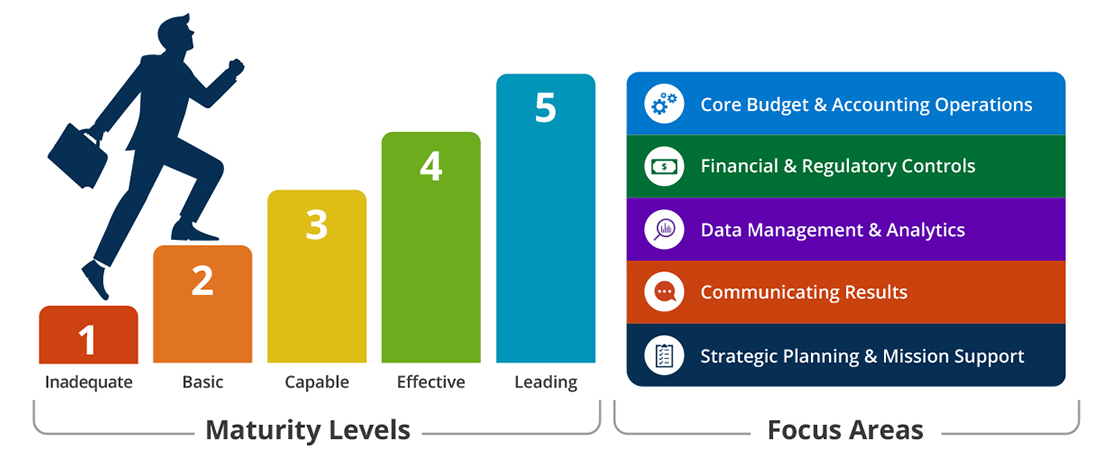By Bob Finley
When you discover you are the 3rd CFO at a company hired within the last 3 months, you know you’re going to have your hands full.
But companies that wait too long to hire their first CFO, often find themselves in just as much trouble.
Why is this?
I believe there are at least 3 key reasons:
- They falsely believe they are not at the point where a part-time or fulltime CFO is cost-justified.
- They fail to invest in systems supporting scale until it is too late.
- They end up unprepared to capitalize on value-optimizing strategic opportunities such as a potential sale, financing, or partnership.
Let’s look at each of these problematic situations and their implications in terms of increased cost, weakened leverage with third parties and lost company profitability and investor value.
“We don’t need a CFO – yet.”
Many private companies operate under the illusion that they can afford to launch and maintain their growth initiatives with their existing startup team including their Controller or Director of Finance. Some are concerned that they can’t afford to access an experienced CFO because of cost. I will give some examples of why it actually is cost effective to bring in a part-time experienced CFO.
Other companies may have unrealistic expectations that their existing team and systems can adequately scale. As companies grow, complexities increase exponentially: E-commerce systems need to be implemented, ERP systems need to be optimized and “talk” to other platforms to provide accurate, timely and actionable information, and technical accounting issues can exceed the company’s ability to complete an audit.
Some companies may also assume that because their current finance leader is fulltime, that they must hire a full-time CFO – but that is not true. In my experience working with dozens of private company management teams, I have seen the fallacy in making these assumptions.
Here are some actual situations I have encountered as a Chief Financial Officer “after the fact”, where millions of dollars could have been saved if an experienced CFO and finance expert had gotten involved earlier:
- A consumer company entered into an overly expensive lease agreement in California, creating a permanent cash flow negative situation.
CFO’s impact: Implementing an Assignment for the Benefit of Creditors which saved the Company $8MM in the next 5 years. - A SaaS company implemented Stripe, but the platform was not implemented correctly, resulting in high transaction fallout rates and millions of dollars in A/R write-offs.
CFO’s impact: Re-implementing the system, reduced fallout rates to < 2% and eliminated A/R write-offs. - A company was doing a first-time audit but lacked technical accounting expertise, which caused the company to spend $1.2MM in external audit and accounting consulting fees. CFO’s impact: Hiring an experienced Technical Accountant, which saved the company nearly a million dollars.
Look, all growth companies need the same things; positive cashflow and capital to fund their expansion into new products and markets, hire talent and build systems. Growth companies must strategically position themselves to meet these two critical objectives. An experienced CFO is the best way to get there, and they don’t have to be full time.
A seasoned part-time CFO (or consultant) can quickly and efficiently conduct a value-added audit of a private company’s financial assets/balance sheet, policies/procedures, systems and recommend ways to lay the groundwork necessary to improve cashflow and attract capital investment. Timing is everything. By spotting gaps and risks early, an experienced CFO can add immediate value to both the management team and CEO.
Failing to Follow the “Maturity Model” in Finance
A second problem often encountered by high growth private companies is waiting too long to invest in the right systems. Again, this may be a cost/affordability issue or just incorrectly forecasting scaling requirements but regardless, it can have dire consequences.
I always assess a company’s financial “fitness” based on a hierarchy known as the “maturity model.” This model prioritizes an organization’s level of financial discipline, effectiveness, and efficiency across five levels from core budget and accounting operations all the way up to strategic planning and mission:

By accurately scoring a finance team’s progress in each of these five areas, an experienced CFO can recommend the necessary steps and investments they need to make to move from a 1 or 2 to a 5.
Let’s look at one illustrative example here of what not following this model can lead to in terms of cost and lost value for a company.
A few years ago, I was asked to assist a hardware client with a SaaS software offering. This company had never done a comprehensive review of their finance systems and requirements, so I was asked to do a complete audit and present my recommendations to the CEO and Board. The company’s SaaS revenue per customer was relatively low, so I knew they would be a good candidate for a “lights out” accounting function (e.g., leveraging automation so no human intervention was needed to process data — all systems would “talk” to each other). Unfortunately, the company had never invested in an integration that would allow for this type of automated accounting function. And the implications were now dire. The company was faced with a growing but uncollectible accounts receivable balance necessitating huge write-offs.
We can all learn from the Amazon lesson here. Plan for scale early on. Don’t wait until problems surface showing you that you invested too late in value-added systems (and key hires, including even a part time CFO).
Missed Strategic Opportunities and High-Cost Financing
This last issue of concern around private companies not hiring an experienced CFO soon enough is probably the most painful – missed strategic opportunities to achieve value creation. This might be a missed opportunity for a sale or acquisition, failing to close on critical growth financing or just the much higher cost of “desperation financing” when negative cashflows mandate this. This is where the “voice of the CFO” couldn’t be more important.
This next story says it all. One of my clients was a manufacturer of a very popular consumer product. It was earning hundreds of millions in revenue and was doubling in size every two years. As CFO, I had recommended to the CEO and rest of the C-suite that we create a robust accounting department that could provide strategic information to the leadership team to help guide further growth. I also recommended that we build out a data room because the Board wanted to explore a strategic financing deal and/or M&A. I felt these actions would allow us to be ready if investors or acquirers presented themselves opportunistically. But the CEO, for his own reasons, demurred.
Several months later, the company’s core product caught the attention of a well-established and financed public company interested in a potential acquisition. Discussions between our team and theirs ensued in a positive direction until the point when their lead negotiator said, “Great, just send us the link to your data room.” We didn’t have a data room and that opportunity vanished. Case closed.
The takeaway here is that growth companies should never get so caught up in their short-term growth execution and drive toward profitability that they don’t plan for the longer-term strategic opportunities that create tremendous shareholder value.
A similar situation can sometimes occur when it comes to cashflow financing at private companies. As one of my finance professors used to say, “Earnings don’t buy beer — cash buys beer”. I have seen too many growth companies focus on profitability while not focusing enough on cashflow. What happens next is that they end up in a declining cash position and — without having laid the groundwork with potential investors, they suddenly find themselves in need of “desperation financing” like Participating Preferred Stock with 3x liquidation preferences or debt with an internal rate of return of 20% or more. Nothing could be more costly, so don’t let this happen to you! Hire an experienced CFO to help you plan for growth well in advance and avoid “desperation financing.” Your investors will reward you when you take the necessary steps today, to build the foundation that leverages these opportunities, tomorrow.
One last story…years ago, one of my clients found themselves faced with a mess of convertible debt, warrants and preferred stock liabilities along with several complex revenue recognition issues. Instead of hiring a strong Technical Accountant or accounting-savvy CFO to sort through this labyrinth, they were forced to outsource this work to an outside firm. That firm did a great job — but then… presented the company with a $900K bill. The company ultimately paid $1.2 million for the complete audit. The CEO had no choice but to pay up since they had contracted for this work. Tactically, this was the only solution for the company. But strategically, the company failed to hire the right expertise early on. This not only further weakened the company financially, but it also meant that the CEO didn’t have the cashflow to invest in growth and bring on key hires. An experienced CFO, hired sooner, could have prevented this situation entirely.
FLG’s CFOs often find themselves parachuting into forest fires. It’s what we do. But what we like to do, if at all possible, is to prevent these forest fires from even starting. Don’t hesitate to reach out to us for help when you need it.



